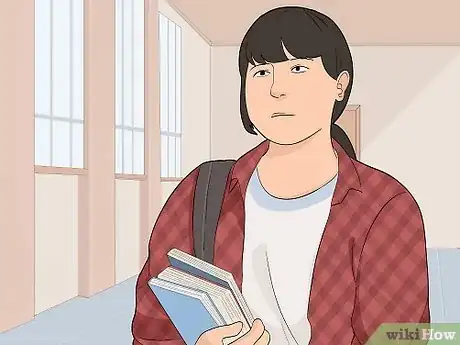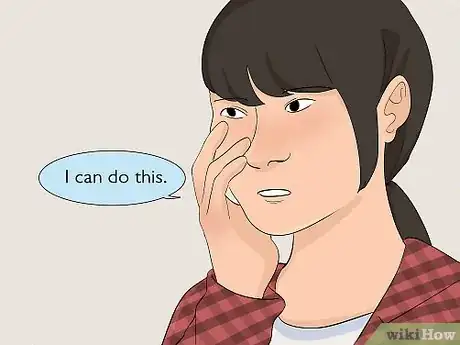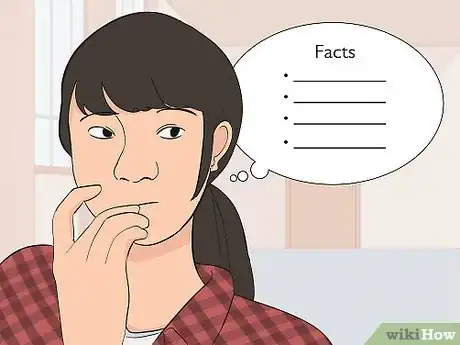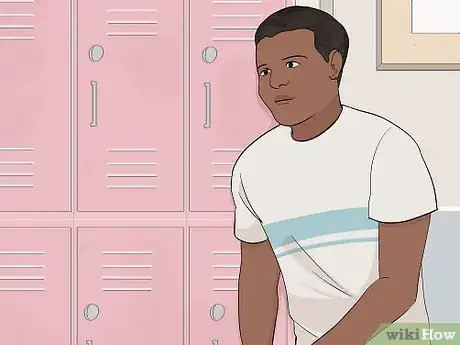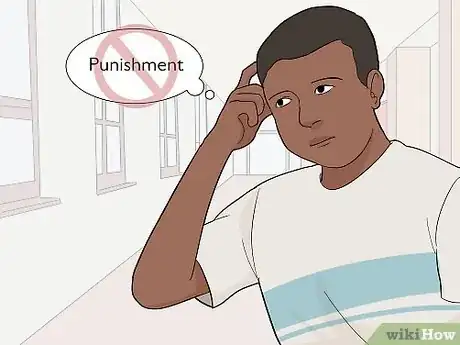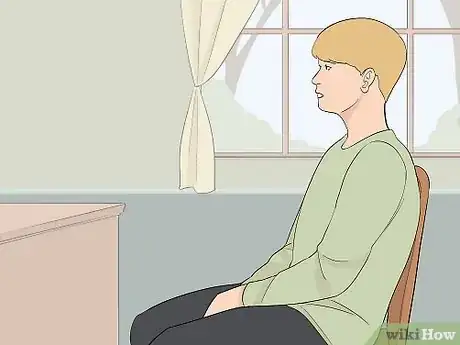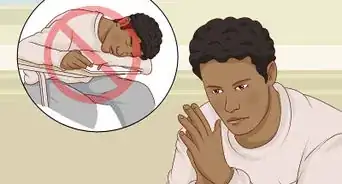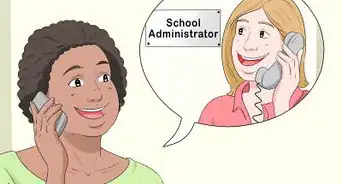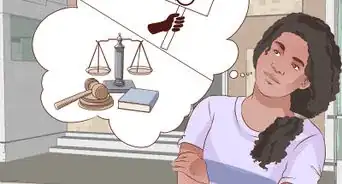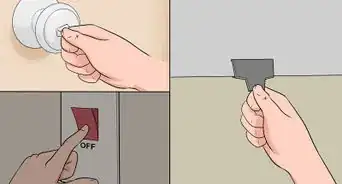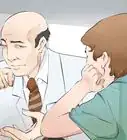This article was co-authored by Katie Styzek. Katie Styzek is a Professional School Counselor for Chicago Public Schools. Katie earned a BS in Elementary Education with a Concentration in Mathematics from the University of Illinois at Urbana-Champaign. She served as a middle school mathematics, science, and social studies teacher for three years prior to becoming a counselor. She holds a Master of Education (M.Ed.) in School Counseling from DePaul University and an MA in Educational Leadership from Northeastern Illinois University. Katie holds an Illinois School Counselor Endorsement License (Type 73 Service Personnel), an Illinois Principal License (formerly Type 75), and an Illinois Elementary Education Teaching License (Type 03, K – 9). She is also Nationally Board Certified in School Counseling from the National Board for Professional Teaching Standards.
There are 10 references cited in this article, which can be found at the bottom of the page.
This article has been viewed 93,706 times.
Getting called down to the principal's office can be one of the most stressful things that a kid has to go through in school. If you don't go to the principal with a strategy, it could make the meeting even worse. Luckily, there are ways that you can calm yourself down and techniques you can use to speak to your principal so that you get the best outcome out of the trip.
Steps
Staying Calm
-
1Breathe slowly and deeply. Taking small, shallow breaths when you're nervous or stressed can lead to more anxiety. Deep breathing can help calm you down and relax your nerves before you have to go the principal. Take deep breaths in through your nose and exhale through your mouth if you're feeling nervous.[1]
-
2Talk to yourself to calm down. If you're overwhelmed and have no one to talk to, you can talk to yourself to calm yourself down. Saying things like "Okay, I'm not responsible for this" or "I'll get through this" may allow you to relax. Keep repeating these things to yourself as you walk down the halls to your principal's office.Advertisement
-
3Get all your facts in order. You don't want to go to the principal without having any story at all. Think about the reasons why you may be in trouble and determine if you're really responsible for what happened. The reason you're getting sent to the principal may have been a misunderstanding. Think about the situation and evaluate all the details before walking into the principal's office.
-
4Take your time. When you get called down the principal, you can take your time to get there. Unless there was a serious situation, your teacher will send you to the office or it'll be announced on the loudspeaker. Taking your time and walking slowly will allow you to get all the facts of your story straight and will give you the time to calm down if you're stressed.[2]
-
5Don't focus on your punishment. There's no way to tell what your punishment will be, or if there will be a punishment at all. Therefore, there's no reason to obsess over what might happen. Instead of focusing on the outcome of your meeting with the principal, concentrate on getting all of your facts correct and work on breathing and relaxing.[3]
Talking to Your Principal
-
1Sit up straight and speak clearly. Body language is an important factor in how your principal looks at you. Make sure to straighten your clothing, sit up straight, and shake your principal's hand when you meet them. When you talk to the principal, don't mumble and speak as clearly as possible so that you give them a good impression. This may make the entire conversation smoother.[4]
-
2Be truthful.[5] Sometimes people get so scared of getting into trouble that they may lie or make things up to get out of it. This can backfire and get you into more trouble than if you just told the truth. When you start talking to the principal, don't make things up and remain honest.[6]
- Lying here or there will make the principal question other things in your story.
- Lying can cause more stress later on because you'll have to stick to your false story and it can be hard to remember made-up details.
-
3Tell your side of the story. Tell the principal in detail what happened and don't leave anything out. Explain why you did what you did, and what led to the situation that you're getting in trouble for. Try to include as many details as you can so that the principal gets an accurate picture of the situation.
- For instance, you can say, "Joe put his foot out and tripped Mary, but she turned around and thought it was me. Mr Collins didn't see exactly what happened, so he assumed that Mary was right."
- Or you could say, "Raul started screaming in my face, so I screamed back. He got mad because I called him out for how he treats other students and that's when he started punching me. I was just trying to get him off of me, I didn't really want to fight."
-
4Be respectful.[7] Don't interrupt or talk over the principal. Talking over or interrupting the principal is rude. If the principal is annoyed with you, it may mean a harsher punishment. Instead, let the principal talk and answer their questions as they ask them.[8]
- Talking over someone may also cause them to mirror your behavior, and it could prevent you from telling your side of the story.
-
5Take personal responsibility for your actions. If you know that you did something wrong, it's best to take responsibility for your actions early on. This will actually make your principal respect you more. Think about what you did, what caused you to do it, and acknowledge the fact that you made a mistake.[9]
- You can say something like "I shouldn't have pushed John back, I can admit that. I was just angry that he shoved me, and it was an automatic response. It's not how I usually am, but I was wrong."
- Or something like, "Honestly, I did skip school that day. I don't really have a good explanation, but now I know it's wrong and I take full responsibility for what I did. I just hope that it doesn't lessen all of the good stuff I've done over the school year."
Avoiding Trips to the Principal
-
1Talk to your parents or trusted adult about your issues. If you try to stay out of trouble but can't stop your behavior no matter what you do, it could be because of circumstances in your life or a medical condition like ADHD. Talk to an understanding adult that can help with things going on in your life. Explain your emotions to them so that people can get a better understanding of who you are as a person.[10]
- You can also ask an adult about the right strategies to use when talking to teachers or authority figures.
-
2Stop trying to impress classmates with bad behavior. You may enjoy the attention that you get from your classmates when you get in trouble, but you are the one that has to face the punishment for your actions. Try to find other ways to be popular in school, like being good at sports or art.[11]
-
3Think before you act. Always think about the potential repercussions of your actions before you do them. More than thinking about the punishment you may get for your actions, think about how they will affect other people's lives. Be compassionate for other people, and always think about how your actions will affect you and others.
- For instance, if you feel like trashing the lunchroom or leaving packets of ketchup on the floor, think about the person who has to clean it up and how it makes their day harder.
- If you bully other people and make them feel bad about themselves, try to think about how it would make you feel if someone targeted you in the same way.
-
4Don't hang out with people who get you into trouble. Sometimes you may feel like you don't have a choice with who we are friends with, but you do. If you have friends who are always getting into trouble and getting you in trouble, you need to stand up against them. Either let them know that you're tired of risking it and getting in trouble, or tell them that you can't hang out with them anymore. Doing this should cut down on how often you're getting into trouble.[12]
Expert Q&A
Did you know you can get expert answers for this article?
Unlock expert answers by supporting wikiHow
-
QuestionWhat do I do when it's my turn to see the principal?
 Katie StyzekKatie Styzek is a Professional School Counselor for Chicago Public Schools. Katie earned a BS in Elementary Education with a Concentration in Mathematics from the University of Illinois at Urbana-Champaign. She served as a middle school mathematics, science, and social studies teacher for three years prior to becoming a counselor. She holds a Master of Education (M.Ed.) in School Counseling from DePaul University and an MA in Educational Leadership from Northeastern Illinois University. Katie holds an Illinois School Counselor Endorsement License (Type 73 Service Personnel), an Illinois Principal License (formerly Type 75), and an Illinois Elementary Education Teaching License (Type 03, K – 9). She is also Nationally Board Certified in School Counseling from the National Board for Professional Teaching Standards.
Katie StyzekKatie Styzek is a Professional School Counselor for Chicago Public Schools. Katie earned a BS in Elementary Education with a Concentration in Mathematics from the University of Illinois at Urbana-Champaign. She served as a middle school mathematics, science, and social studies teacher for three years prior to becoming a counselor. She holds a Master of Education (M.Ed.) in School Counseling from DePaul University and an MA in Educational Leadership from Northeastern Illinois University. Katie holds an Illinois School Counselor Endorsement License (Type 73 Service Personnel), an Illinois Principal License (formerly Type 75), and an Illinois Elementary Education Teaching License (Type 03, K – 9). She is also Nationally Board Certified in School Counseling from the National Board for Professional Teaching Standards.
Professional School Counselor
-
QuestionIf you don't do anything bad and another kid tells the principle you did, how do you survive that?
 Community AnswerJust stick to the truth and try to get other teachers or students who may have seen the situation.
Community AnswerJust stick to the truth and try to get other teachers or students who may have seen the situation. -
QuestionHow do I forget about the trip to the principal's office if I feel bad about it?
 Community AnswerAccepting your fault and committing yourself to being a better person will make you feel better.
Community AnswerAccepting your fault and committing yourself to being a better person will make you feel better.
References
- ↑ http://www.webmd.com/a-to-z-guides/features/health-tip-less-stress-7-steps
- ↑ https://www.entrepreneur.com/article/237694
- ↑ https://www.entrepreneur.com/article/237694
- ↑ https://blog.udemy.com/positive-body-language/
- ↑ Katie Styzek. Professional School Counselor. Expert Interview. 28 October 2020.
- ↑ https://www.thehopeline.com/how-to-stop-lying-part-1
- ↑ Katie Styzek. Professional School Counselor. Expert Interview. 28 October 2020.
- ↑ https://www.inc.com/andrew-thomas/one-conversation-killer-thats-easy-to-fix.html
- ↑ https://www.psychologytoday.com/blog/sapient-nature/201112/taking-personal-responsibility-your-happiness
